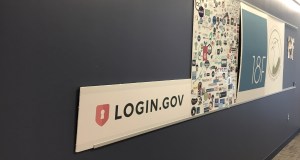 Neville Pattinson, vice president for government affairs, standards and business development at Gemalto.
Neville Pattinson, vice president for government affairs, standards and business development at Gemalto.Neville Pattinson, vice president for government affairs, standards and business development at Gemalto, is a FedScoop contributor.
In the United States, a driver’s license is used for much more than driving; it is often used as a primary source of identification (in lieu of a national ID card) for employment, domestic travel, banking, purchasing and more. But many states lag behind in using the latest security technology in their driver’s licenses, leaving their citizens open to risk.
The good news is, many states are showing interest in upgrading the security features of their driver’s licenses. Some states are even moving to incorporate secure chips in their licenses — the same chips that secure the data in your passport. Much of the rest of the world is already using chip technology in their licenses, so it’s good to see the U.S. showing some interest, too.
In 2005, the Department of Homeland Security mandated 18 new benchmarks for updated security on driver’s licenses to make it harder for terrorists, illegal immigrants and con artists to fraudulently replicate government-issued identification. This REAL ID came about after terrorists involved in Sept. 11, 2001 were found to have multiple driver’s licenses from various states in their possession.
The REAL ID benchmarks are a good starting point, but I am a strong proponent of additional layers of security being built into driver’s licenses, including smart card chip technology. These are commonly called eDriver’s licenses.
Placing a chip into a driver’s license gives the card the ability to store secure data not visible on the card such as authentication information, including biometrics. The chip would also aid law enforcement in maintaining central databases equipped with information about the validity of a license. Storing personal information on the chip instead of being directly printed on the card also helps retain the privacy of the license owner. In the event your card is lost or stolen, it would be incredibly difficult for someone to access your identity.
Adding a chip into all driver’s licenses could open up the flood gates for other benefits from this card and help centralize identity management. Combining all of the different identification documents provided by different state agencies into one smart card that could be used for programs such as Medicaid benefits, food stamps and driver’s licenses could be the future.
How much security would you like in your driver’s license?






